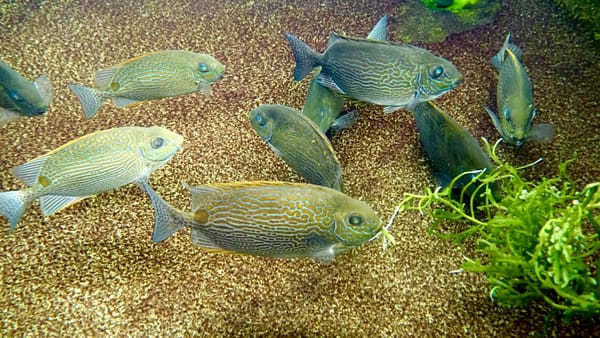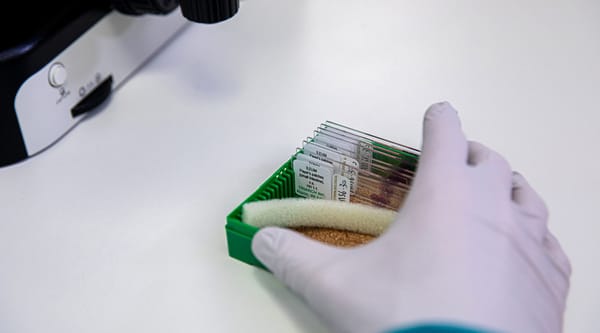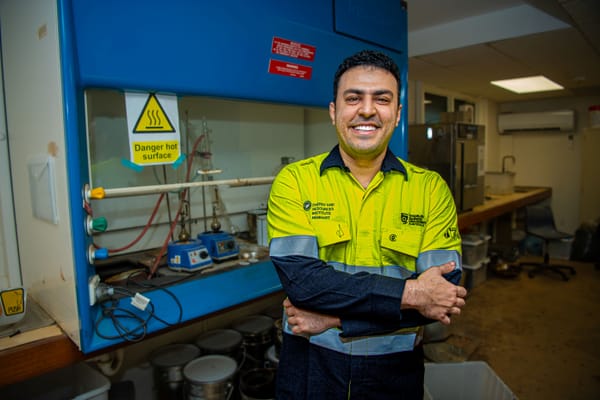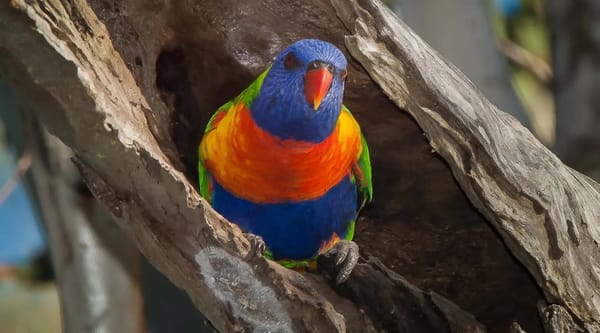Engineering students break two world records
The MQ Speed Team of student engineers designed a custom vehicle that broke two world land speed records in Nevada in September 2024.
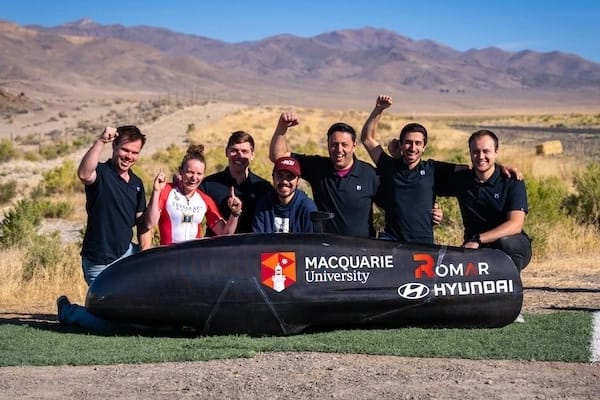
First published by Macquarie University
On September 14, the MQ Speed team (a team of students led by Dr Sammy Diasinos from the School of Engineering) broke two land speed records in the 2024 World Human Powered Speed Challenge in Battle Mountain, Nevada, with their custom-built vehicle MQ2.
The team competed in the challenge from September 8-14, with six students from the team, Dr Diasinos and professional cyclist Lizanne Wilmot flying to the USA for the event. The competition in Battle Mountain runs for a week, with teams making multiple attempts to break their respective records.
On the last day of the series, the team set a new world record in the women's 600/200 category, reaching a speed of 63.3 km/h. Later that day, they broke the women’s multi-track Flying 200 record by an impressive 5 km/h, setting a new world record of 96.8 km/h.
The MQ Speed Team was awarded the Collegiate Trophy and announced the overall event winner.
The annual World Human Powered Speed Challenge takes place on a six-mile stretch of straight, level road in the Nevada desert, with the course selected for its flat gradient and high altitude providing low air density.
MQ 2 – the Macquarie University team’s vehicle – is a recumbent tricycle, enclosed in a carbon fibre shell designed to minimise aerodynamic drag and with telemetry systems for performance monitoring, all developed by undergraduate engineering students.
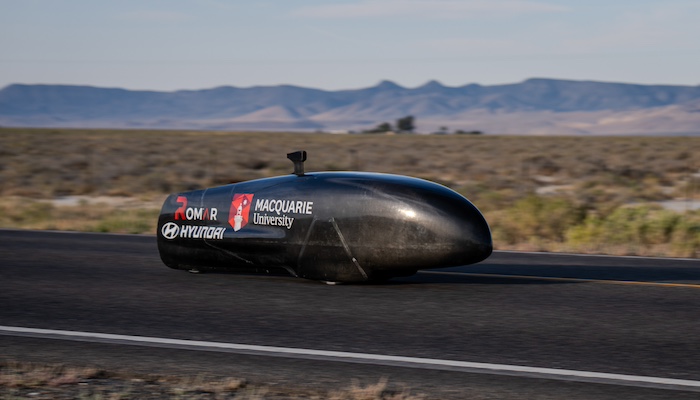
Over more than six months, the team of more than a dozen students used specialised design tools and machinery to design and build the vehicle. This included 3D body scanning to tailor the vehicle for their rider Wilmot, a professional cyclist who has ranked in the world’s top 100 in both Sprint and Keirin events.
Students used a range of analysis tools, testing their work using wind tunnels and computer simulations at the university, along with numerous trials at local velodromes and on an airport runway on the Central Coast.
The MQ Speed Team was the only Australian university team at this year’s event (and one of two Australian entries) and in 2017 was the first Australian team to attend the event.
Other university teams competing this year included Delft University of Technology, VU University Amsterdam, Portland State University, Policumbent University Italy, Liverpool University, Annecy UIT France and the University of Toronto.
During speed trials, the team use live telemetry systems developed by the students to monitor vehicles performance and safety so they can stop immediately if they spot any issues during the high-speed runs.
“Students gain invaluable experience when they’re part of a real-world project with live deadlines and under racing pressure,” says Dr Diasinos, who worked in Formula 1 racing for six years and also took part in solar car design and racing, before initiating the MQ Speed project at Macquarie University in 2017.

